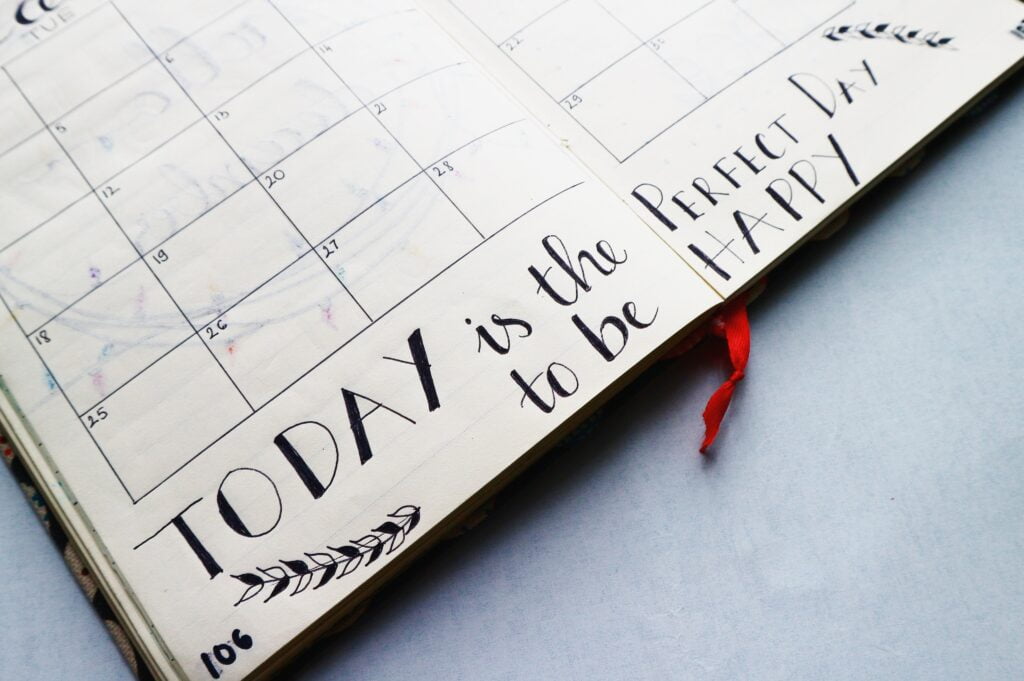Whenever we try to change something that we do in our everyday life – whether that’s starting something new, stopping something we no longer want to do or simply switching the way we do something, we often refer to and rely on ‘WILLPOWER’. As willpower requires effort and energy, however, as soon as we start to feel tired, stressed, busy and so on (which we inevitably do at some point) we automatically revert back to our old, ingrained patterns because they are easier and more comfortable. Quite often, we then berate ourselves for our lack of willpower or discipline thus lowering our self-belief and motivation even further. We only have so much energy and as humans, we use much of this to think about and execute the estimated 35,000 decisions we make each and every day. From what time to wake up to what to eat to how to spend our spare time, our ability and energy to make these decisions becomes gradually more depleted as we experience decision fatigue. It’s at this time that we will revert to the options that require the least effort. This is where HABITS come in and why it’s crucial to make them as helpful and healthy as possible.
Habits are defined as ‘a settled or regular tendency or practice, especially one that is hard to give up’. Once something is ‘settled or regular’ it becomes extremely comfortable and therefore the ‘easier’ option for us as opposed to change and effort. The fact that habits are hard to give up is further proof of how automatic and easy they are to carry out. If we want to make successful and long-lasting changes to any aspect of our lifestyle, we should therefore focus on building the HABITS that we want rather than relying solely on WILLPOWER each and every time. Below are my 5 key points to consider for creating steadfast habits that will help to make achieving your goals and living a happy and healthy lifestyle much easier.

1) Scheduling – This includes first of all deciding when your new habit will fit into your lifestyle. Is it something you want to do in the morning, afternoon or evening? Will it be important at mealtimes or is it something you already do at certain times that you wish to change? By knowing when this habit is most relevant, you can prime yourself to be aware of your actions at this crucial time. You could set a reminder on your phone, leave yourself a note on the fridge or even try and slot new habits in at a time where you’re more likely to have high energy such as after breakfast as opposed to after a long day at work.
The second aspect of scheduling is deciding when you will BEGIN your new habit. For some people, they decide they want to make a change from the very moment that they realise this, whereas others may set a more appropriate date such as once they’ve started their new job, once their children go to school or even after a big birthday or event that’s coming up. It’s important that we don’t just tell ourselves we will change ‘one day’ or ‘when we have the time/energy’ as quite often, that time never comes. Make a date, mark it on the calendar and don’t look back!

2) Motivation – For any habit to be implemented, changed or left behind, it’s crucial that we have a clear motivation for doing so. Make sure you ‘know your why’ – be it having more energy, improving your health, feeling less stressed or whatever else you want to achieve, keep this in mind whenever you’re tempted to give up and return back to the comfort of old habits. Remember – changing habits is difficult but sticking to them once they’ve become automatic is much easier. Remember that it takes short term effort to reap the longer term rewards and your ‘why’ will be the proverbial carrot to spur you on. For more help with motivation check out my previous blog ?
3) Ease – In order to change a habit successfully, it will help to make it as easy as possible to do so. One way to do this is to link your new habit to something you already do daily, for example if you want to drink 6 glasses or water each day try and drink one before each cup of tea or coffee you make, or each time you wash your hands for example. By pairing an existing habit with a new one it becomes much easier to make them stick. You can make changing habits easier with clever scheduling, as detailed before, by adding habits into times when you’re more likely to be motivated and full of energy. Another top tip is to start wherever is easiest. For example if you want to cut down on alcohol, it may be particularly hard to say no to that glass of wine on a Friday night when you’re in front of the tv with your family or partner but the one you have on a Tuesday whilst cooking dinner because you’ve had a long day? Could that be swapped for another stress-relieving activity such as a warm bath or a short, brisk walk? Not everyone can go cold turkey on their habits or dive in head first and pick up a new one 7 days a week. Small steps are much more achievable and sustainable for many of us and therefore more likely to create the long-term change that we’re aiming for.

4) Accountability – This means having someone to check in with and report your progress to, who will help to keep you on track and encourage you when you may be tempted to give up. This could be from a coach, personal trainer, friend or family member and could even be somebody who is aiming to achieve similar habits to yourself. Your accountability partner can be as brutal or as gentle as you need, but by telling others what we really want and stating that we’re going to achieve it we’re often more likely to stick to our plan so as not to let them down or face their wrath even when we’d be okay with letting ourselves down!
5) Perseverance – This is certainly last but not least when it comes to habits! Whilst it has been quoted that it takes around 21 days to form a habit, the truth is that it depends on the both the individual and how hard the habit is. This can include how long we’ve been practicing a habit we want to change or how much time and effort it takes to carry out a new habit that we’re trying to master. Studies have shown that it can take anywhere from 18-254 days for a habit to become second nature and so clearly it requires long term commitment. Just remember that the effort you put in for the initial period will pay off no end when the actions that support your very best health and happiness are automatic.
In summary, whilst habits are by their very nature ingrained in our daily lives and thus often tricky to change, there are several ways you can make the process easier and set yourself up for success. Consider all of the above points and return to them whenever you need to (you can remember them with the acronym SMEAP!) See yourself in the future carrying out your most helpful habits and persevere until you get there. No matter how long a specific habit takes for you to master – the sooner you get started, the sooner you’ll be living a happier and healthier life and no longer relying on that not-so-trusty old reserve of willpower.
Bev Meakin. Exercise Referral Officer and Complementary Therapist. Instagram @bevs_life

